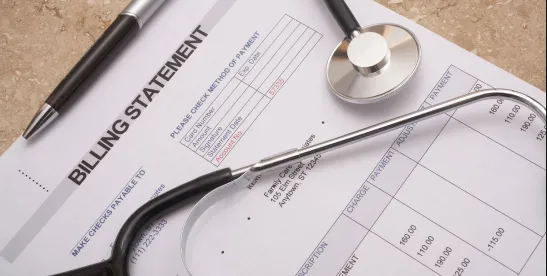The Centers for Medicare & Medicaid Services recently published the calendar year (“CY”) 2026 proposed rule for Medicare payment for services provided in hospital outpatient departments under the Outpatient Prospective Payment System (“OPPS”) and services provided in ambulatory surgery centers (“ASCs”) (“the Proposed Rule”). Comments are due by September 15, 2025.
The Proposed Rule aligns with many of President Trump’s recent Executive Orders, focusing on:
- Cost containment for the Medicare program;
- Enhanced hospital price transparency requirements and enforcement;
- Expansion of digital health applications and services;
- Termination of diversity, equity and inclusion programs that “encourage unlawful discrimination”;
- Reduced Medicare reimbursement for drugs in an effort to lower drug prices; and
- Elimination of quality measures related to advancing health equity, addressing social drivers of health, and encouraging COVID-19 vaccination coverage among health care personnel from the applicable Medicare quality reporting programs.
The Proposed Rule includes some policies that were also adopted during President Trump’s first administration, such as removing Medicare payment limitations on site of service and permitting more procedures to be performed in lower-cost hospital outpatient or ASC settings. The Proposed Rule does not include anticipated changes to the Medicare Conditions of Participation for hospitals related to gender affirming care; those changes are still anticipated in a forthcoming proposed rule later this year.
Payment policy proposals of significant interest to hospitals, ASCs and their patients, partners, vendors, and other stakeholders include:
Changes to Site of Service
From Hospital Inpatient to Hospital Outpatient: As adopted during President Trump’s first administration, CMS proposes to phase out the hospital “Inpatient Only” (“IPO”) list over 3 years, beginning with the removal of 285 mostly musculoskeletal services for CY 2026.
CMS also proposes to continue its existing policy to exempt procedures that are removed from the IPO list from certain medical review activities for inpatient stays, including “site-of-service” claims denials, referrals to Recovery Audit Contractors (“RACs”) for consistent non-compliance, and RAC reviews for “patient status” or “site of service” until CMS claims data shows that the procedures are more commonly billed in the outpatient setting than the inpatient setting. CMS states that despite these exemptions, initial medical review contractors can still refer providers to RACs for noncompliance with Medicare payment policies.
From Hospital Outpatient to ASC: CMS proposes to expand the ASC Covered Procedures List (“CPL”) by substantially revising the criteria historically used determine whether a surgical procedure can be safely performed in the ASC setting and instead treating them as nonbinding safety factors for each physician to consider with respect to the specific Medicare beneficiary being treated. CMS made a similar policy change during President Trump’s first administration for CY 2021. As a result of proposed policy changes to these criteria and to the IPO List, CMS proposes to add 547 procedures to the ASC CPL for CY 2026.
Taken together, these two policies will mean that Medicare beneficiaries can undergo more complex surgical procedures in lower-cost hospital outpatient or ASC settings, potentially improving beneficiary access and choice of providers, and alleviating hospital capacity constraints. The changes reflect increased deference to—and discretion for—the treating physician about the appropriate site of care for the specific procedure and the specific Medicare beneficiary. At the same time, however, payors, hospitals and treating physicians will want to carefully evaluate the appropriateness of the setting in light of the Medicare patient’s risk factors to prevent adverse outcomes. Risk management, informed consent related to the potential risks, and related documentation for provider and patient’s decisions may become even more critical.
Site Neutral Payment
CMS solicits information to help the agency create a more systematic approach to: (1) identifying ambulatory services that are at high risk of shifting to the hospital outpatient setting due to financial incentives, rather than medical necessity, and (2) making payment adjustments to eliminate that incentive.
Questions for comment include what hospital outpatient services have experienced unnecessary volume increases and whether targeted policies should be developed for services shifting from ASCs or physician offices to hospital settings. CMS also seeks input on whether OPPS payments should be limited to the levels paid under the ASC or Physician Fee Schedule (“PFS”) if those are the predominant settings for the service, and on the best methods for determining the most appropriate setting, such as using current or historical data and whether to incorporate Medicare Advantage in analyses. Additional considerations include accounting for geographic differences in the availability of care settings, aligning differing payment packaging and bundling policies, and determining if exceptions should be made for emergent or trauma-related services, or for certain hospitals like rural facilities.
CMS explains that feedback will inform future rulemaking aimed at curbing unnecessary volume shifts to higher-paid settings and promoting payment equity across care sites.
Hospital Price Transparency
To advance President Trump’s Executive Order “Empowering Patients through Radical Price Transparency,” CMS proposes to refine (again) the data elements that hospitals are required to report related to their payor-specific negotiated charges, to standardize the calculations and data sources used to report those amounts, and to strengthen and add a formal attestation requirement for the responsible hospital executive to affirm that the hospital pricing information that is made publicly available is complete and accurate. Enforcement against “egregious violations” of hospital price transparency requirements, such as a hospital’s failure to post the required data file and a consumer-friendly list of “shoppable services” and their prices, will remain a priority.
Expanding Use of Digital Health and Virtual Services
During the COVID-19 Public Health Emergency, CMS temporarily allowed a physician’s virtual presence to satisfy Medicare billing requirements for direct supervision by a physician for certain hospital outpatient therapeutic and diagnostic services. CMS extended that flexibility through the end of December 31, 2025, and now proposes to make the availability of the direct supervision via audio-video real-time communications technology (excluding audio-only) permanent for clinicians supervising Cardiac Rehabilitation (CR), Intensive Cardiac Rehabilitation (ICR), Pulmonary Rehabilitation (PR) services and most diagnostic services, except for diagnostic procedures that are subject to a 10-day post-operative global surgery payment period or a 1-day pre-operative and 90-day post-operative global payment period. This aligns with CMS’s simultaneous proposal under the Medicare PFS for CY 2026 and reflects trends in virtual care delivery since the COVID-19 public health emergency.
CMS also requests information to help it identify alternative and consistent payment methods for software as a service (SaaS) services across settings of care in a future rulemaking. Before 2018, payment for SaaS was packaged into the payment for the underlying clinical service because SaaS procedures were considered supportive or ancillary services. As SaaS technologies have developed, especially through artificial intelligence, interested parties have noted the lack of a consistent payment policy that is consistent across settings of care, payment systems, and types of SaaS. CMS also proposes payment rates for certain SaaS services, including Atherosclerosis Imaging-Quantitative Computer Tomography, LiverMultiScan Service, Quantitative Magnetic Resonance for Analysis of Tissue Composition, Quantitative Magnetic Resonance Cholangiopancreatography and Fractional Flow Reserve Derived From Computed Tomography.
Changes Related to Payment for Graduate Medical Education Programs and DEI
To advance Executive Order 14279 “Reforming Accreditation to Strengthen Higher Education,” CMS proposes to add a new criterion that “approved Graduate Medical Education (“GME”) programs” must meet in order to qualify for Medicare reimbursement that would prohibit the national organizations that accredit GME programs from “requir[ing]as part of accreditation, or otherwise encourag[ing] institutions to put in place, diversity, equity, and inclusion programs that encourage unlawful discrimination on the basis of race or other violations of Federal law.” CMS proposes that to ensure that accreditation compliance with “applicable laws related to race-based admission policies and to improve the accreditation process,” for purposes of Medicare payment, the accreditation organization must not use “accreditation criteria that promote or emphasize diversity, equity inclusion, or awareness based on race, color, sex, sexual orientation or identity, national origin, or any other characteristic which serves as a proxy to achieve the same ends.” CMS does not address how the agency, the approved GME programs, or hospitals seeking Medicare reimbursement for their GME programs, will identify or evaluate whether or not this criterion is satisfied.
Changes Related to Hospital Payment for Drugs and the 340B Program
CMS announces that pursuant to Executive Order 14273, “Lowering Drug Prices by Once Again Putting Americans First,” the agency plans to conduct a nationwide survey of hospital acquisition costs for all covered outpatient drugs at hospital outpatient departments that are separately paid under the OPPS. The survey will be conducted in early calendar year 2026 and CMS intends for the survey to be completed in time to inform policymaking for the calendar year 2027 OPPS proposed rule.
The survey results could lead to significant changes to Medicare payment for hospital outpatient departments with infusion centers or that otherwise administer large volumes of drugs covered and paid for under Medicare Part B. The Medicare statute requires CMS to conduct a survey of hospital acquisition costs for certain “specified covered outpatient drugs” (known as “SCODs”) in order to base Medicare payment on such costs. If no hospital acquisition cost data is available, Medicare must pay hospital outpatient departments for all separately payable drugs under the same methodology used to determine Medicare Part B payment to physicians: 106% of the “Average Sales Price” (known as “ASP+6%). Since 2006, CMS has not conducted a survey of hospital acquisition costs for each SCOD and instead has paid hospital outpatient departments for all separately payable drugs (i.e., not limited to SCODs) at ASP+6%.
The Medicare statute requires the hospital cost acquisition survey to have a large sample of hospitals that is sufficient to generate a statistically significant estimate of the average hospital acquisition cost for each drug. CMS specifically requests comment on whether it should make responding to the survey a mandatory requirement for all hospitals paid under the OPPS and on a number of different policy alternatives to establish Medicare payment rates for hospitals that do not respond to the survey, such as: (1) using the lowest hospital acquisition cost reported by otherwise similar hospitals; or (2) assuming those drug costs are “minimal” or “ancillary” and packaging payment for the drugs into the payment for the associated service; or (3) using other data sources to determine costs such as the Federal Supply Schedule or 340B Ceiling Price.
CMS also proposes to significantly reduce OPPS payments for non-drug items and services to accelerate the time frame by which CMS can fully offset the payments it made to hospitals for drugs acquired under the 340B program as a remedy after the Supreme Court ruled in American Hospital Association v. Becerra (2022) that the agency’s policy cutting Medicare Part B reimbursement for 340B drugs to ASP-22% starting in calendar year 2018 was unlawful. Following the Court’s decision, in November 2023, CMS restored the Medicare payment rate for separately payable 340B-acquired drugs to ASP+6% for calendar year 2023 and made a lump sum payment to the approximately 1700 affected hospitals for 340B-acquired drugs for calendar years 2018-2022. To maintain budget neutrality across the OPPS, however, CMS also adopted an adjustment to reduce the OPPS conversion factor that is used to determine payment rates for non-drug items and services by 0.5% starting in calendar year 2026. CMS estimated at that time that the 0.5% reduction would be continued for 16 years (i.e., until calendar year 2041). CMS now proposes to revise the reduction for non-drug items and services for hospitals for whom this adjustment applies from 0.5% to 2%. This proposed 2% reduction would remain in effect for certain hospitals until the estimated payment reduction fully offsets the amount paid as a remedy, which CMS now estimates will occur in CY 2031.
Payment Update
The Proposed Rule includes a proposed 2.4% increase in OPPS and ASC payment rates for hospitals and ASCs that meet the applicable quality reporting requirements, increasing Medicare hospital payments by approximately $8.1 billion and ASC payments by approximately $480 million nationwide. Hospitals and ASCs that fail to meet quality reporting requirements would be subject to a 2% reduction in payments. OPPS payments to hospitals subject to the 340B remedy offset will be reduced by another 2%.
Jessica Missel contributed to this article





 />i
/>i
